Autumn Statement: What it means for you
- Published
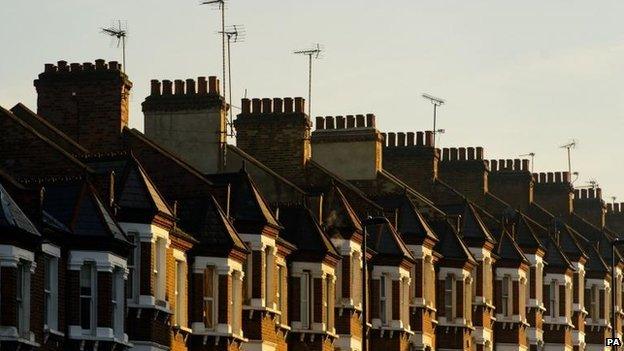
Stamp duty changes was one of the most striking aspects of the speech
People buying a home in the UK will feel the direct impact of announcements in the Autumn Statement - but individuals' savings and income were also put under the spotlight.
Chancellor George Osborne said the contents of his speech were a signal of "staying on course for prosperity". This was the final Autumn Statement before the General Election in May next year.
It follows a Budget in March that was packed with announcements affecting savings and pensions amid the continuing programme of austerity.
The Autumn Statement is always the smaller, less illustrious stablemate of the Budget, but many announcements will affect the money in wallets and purses.

What was the big announcement for house buyers?
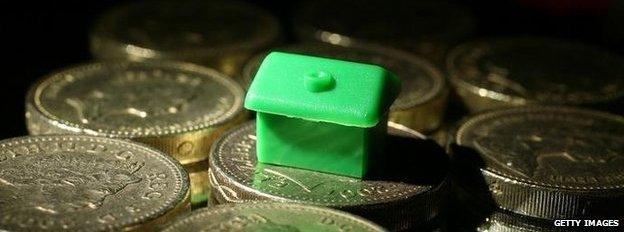
One move that has been made is a complete overhaul of the stamp duty system.
Rising house prices have pushed many homes into a new bracket of tax.
Under the present system, external, stamp duty is calculated as a percentage of the whole property price - rising at various trigger points. These are 1% for properties bought for more than £125,000, 3% for homes bought for more than £250,000, 4% at over £500,000, 5% at over £1m, and 7% at over £2m.
For example, £2,500 is levied in stamp duty when a house is bought for £250,000. However, this bill triples if buyers pay a penny more than that for a property.
The chancellor has announced a significant change in the way stamp duty is levied. The surprise is that this will take effect almost immediately.
The new system will mean that, in the same way as income tax, rates apply only to the part of the property price that falls within each band when it is bought.
From 4 December, this means:
No stamp duty will be paid on the first £125,000 of a property
2% will be paid on the portion up to £250,000
5% is paid for the portion up to £925,000
10% is paid on the portion up to £1.5m
12% is paid on anything above that
Anyone in the throes of buying a property, having exchanged contracts already but not completed, will be able to choose whether to use the old or the new system.
A stamp duty calculator, external has been created by HM Revenue and Customs.
The changes will apply in Scotland until the Scottish Government's new progressive rates scheme of rates replaces stamp duty next April.

We often hear about the tax-free allowance? Has that happened this time?
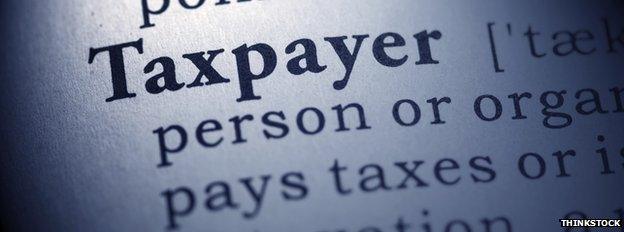
Yes, the chancellor has an aspiration to make anyone who earns less than £12,500 to be free from paying income tax.
He is not near that figure yet. However, he announced that the personal allowance will rise to £10,600 in April rather than the planned £10,500 next year.
The threshold at which taxpayers start to pay the 40% higher rate will increase to £42,385 in April - again, £100 more than expected.

Savers have been hit by low rates. Was there any help for them?
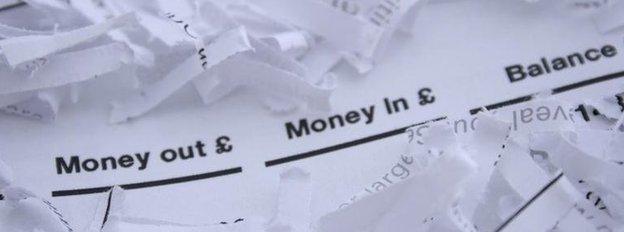
In July, a much higher limit of tax-free Individual Savings Accounts (Isas) came into force. A total of £15,000 can be saved in an Isa in cash or shares.
This limit will be raised to £15,240 in April.
At present, any savings in an Isa lose their tax-free status when somebody dies and their spouse starts paying tax on those savings.
The chancellor said that, with immediate effect, when someone dies, their husband or wife will be able to inherit their Isa and keep its tax-free status.
Next week, the over-65s will hear what the rates are to be offered with the new Pensioner Bond that will be available from January.
It has been suggested that rates could be 2.8% for a one-year bond and 4% for a three-year bond.

I think I need a break. Any news on travel?
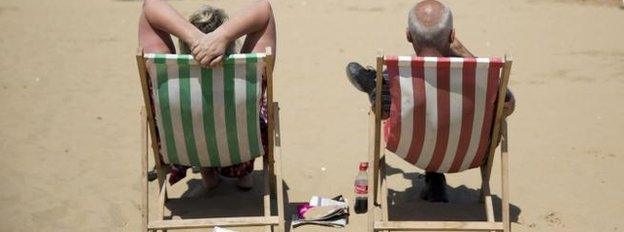
The cost of air tickets for children is likely to go down.
From 1 May next year, Air Passenger Duty for children under 12 will be abolished, and the same will happen for under-16s the following year.
Those who have already booked tickets for dates after 1 May may get the duty refunded, but it will be a decision for the individual airline.
Airlines will also be required to list the charges separately from taxes on tickets.
On the roads, as expected, drivers will not see a rise in fuel duty. It has been frozen again.

What about wages?
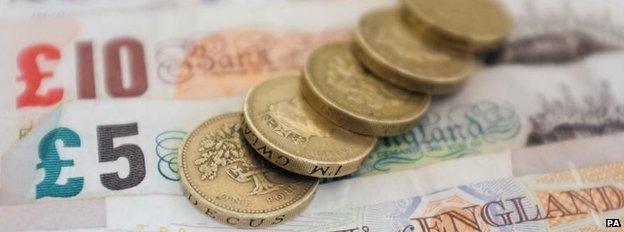
For some time wages were lagging behind the rising cost of living, as measured by the inflation rate.
The independent Office for Budget Responsibility (OBR) predicts that there will be above-inflation rises in wages in the next five years.
However, pay restraint in the public sector is likely to continue, the chancellor signalled.

And what about benefits?
There were more welfare cuts announced, including Universal Credit, external work allowances being frozen for another year.
In addition, Mr Osborne said tax credits when overpayments were certain would be cut, and unemployment benefits would stop for migrants with no prospect of work. This would bring spending down a further £1bn, he said.
A number of major welfare payments already have a cap on annual increases.